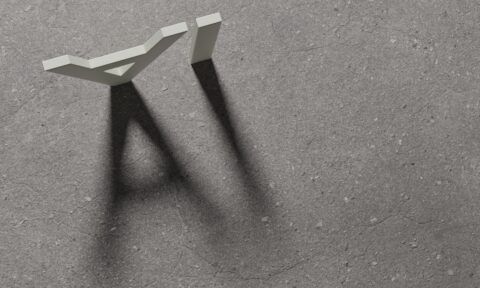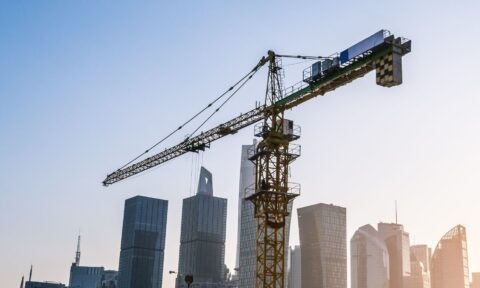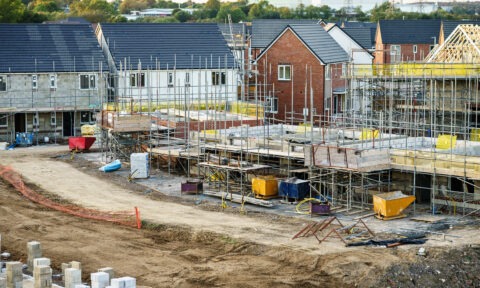Basic Hydrodynamics
- Online course for professionals in marine industries to understand wave mechanics and wave deformation. Engineers and scientists involved in ship design will benefit from the course. Lectures cover topics such as hydrodynamics, free surface waves, wave properties, wave transformation, finite amplitude wave theories, random waves analysis, wave loads on structures, and application of hydrodynamics to wave energy. The course is innovative with a balance of theory and practice.
Overview
The Online Hydrodynamics Training Course is designed for professionals in major ports, harbours, offshore, and marine industries to understand wave mechanics terminology, wave motion basics, and wave deformation. The course covers topics such as wave properties, wave transformation, finite amplitude wave theories, analysis of random waves, wave loads on structures, and application of hydrodynamics to wave energy. Engineers, scientists, ship designers, and personnel from ship management, oil companies, and ship builders will benefit from the course's innovative content and structure. The course is led by Dr. Debabrata Karmakar, an expert in Marine Hydrodynamics and Offshore Renewable Energy.
Who should attend
Engineers, Scientists, Ship Designers, Ship Management Personnel
Course Content
About The Course
This course is expected to be of great help to professionals in major ports, harbours, offshore and
marine industries. The course will facilitate to understand the terminology pertaining to the study of
wave mechanics and will give an insight into the different types of structures in the ocean front and the physical and environmental parameters prevailing on the ocean surfaces. The basics of wave motion and wave deformation, which is the central interest and major focus. A notable account on small amplitude wave theory followed by profound explanation and inferences of dynamic properties of standing and progressive waves will be discussed. A detailed summary of the various types of wave deformations along with their degree of importance in near-shore environment and influence of wave parameters will be discussed. A detailed account of finite amplitude wave theory with mathematical and statistical approach highlighting the established theories will be discussed
in detail. The real-time environment for an actual sea state consisting of random waves, which is nonperiodic and nonlinear in nature will be discussed. Further, the impact of wave loads on structures and energy from ocean waves will be discussed in detail.
Who Should Attend?
Engineers and scientists involved in the design of ships and ship systems. Personnel from ship management companies, oil companies, classification societies and ship builders will benefit from attending this course. The course is innovative in both content & structure with a careful balance of theory & practice.
PROGRAMME (All timings are in GMT)
Day 1:
09.00 – 10.30 Lecture 1: Introduction to Hydrodynamics
✓ Types of flow
✓ Continuity equation conservation of mass
✓ Forces acting on fluids in motion
✓ Euler’s equation of motion
✓ Pathlines and streamlines
✓ Velocity potential
✓ Stream function
✓ Bernoulli equation
10.30 –10..45 Break
10.45 – 12.15 Lecture 2: Free Surface Waves
✓ Small amplitude wave theory
✓ Dispersion relationship
✓ Celerity in different water depth conditions
✓ Local fluid particle velocities and accelerations
under progressive waves
✓ Water particle displacement under progressive
waves
12.15 – 12.45 Break
12.45 – 14.15 Lecture 3: Wave Properties
✓ Pressure distribution under progressive waves
✓ Group celerity
✓ Wave energy
✓ Wave power
✓ Mass transport velocity
14.15- 14.30 Break
14.30 – 16.00 Lecture 4: Wave Transformation
✓ Different zones based on behaviour of ocean
waves
✓ Shoaling
✓ Wave refraction
✓ Wave diffraction
✓ Combined refraction and diffraction
✓ Breaking of waves
✓ Breaking criteria
✓ Wave height at the breaking point
✓ Types of breakers
✓ Wave reflection
✓ Waves on currents
Day 2:
9.00 – 10.30 Lecture 5: Finite Amplitude Wave
Theories
✓ Classification of finite amplitude wave theories
✓ Stoke’s wave theories
✓ Solitary wave theory
✓ Cnoidal wave theory
✓ Stream function theory
10.30 –10..45 Break
10.45 – 12.15 Lecture 6: Analysis of Random Waves
✓ Analysis of ocean waves
✓ Sea waves as stationary ergodic processes
✓ Statistical procedure
✓ Wave-wave spectrum relationship
✓ Spectral method
✓ Presentation of wave characteristics
✓ Ocean wave prediction models
✓ Pierson-Moskowitz spectrum
✓ Standard representation of wave spectra
✓ Simulation of time series
✓ Simulation of waves with pre-defined spectral
characteristics
✓ Simulation of water particle kinematics
✓ Directional waves
12.15 – 12.45 Break
12.45 – 14.15 Lecture 7: Wave Loads on Structures
✓ Various force regimes
✓ Wave forces on slender structures
✓ Froude-Krylov forces
✓ Linear diffraction problem
✓ Linear diffraction theory for wave forces
✓ Wave slamming
✓ Wave forces on walls and rubble mound
structures
14.15-14.30 Break
14.30 – 16.00 Lecture 8: Application of
Hydrodynamics to Wave Energy
✓ Ocean energy
✓ Wave energy potential
✓ Wave energy conversion
✓ Levels of harnessing of wave energy
✓ Classification of wave energy converters
✓ Conversion process
✓ Wave energy devices
✓ Factors to be considered for wave energy
devices linked to breakwaters
ABOUT THE LECTURERS:
Dr. Debabrata Karmakar is presently working as an Assistant Professor at Department of Water
Resources and Ocean Engineering, National Institute of Technology Karnataka, Surathkal.
After receiving Ph.D. degree from the Department of Ocean Engineering and Naval
Architecture, Indian Institute of Technology Kharagpur. India, in 2009, he worked as a postdoctoral researcher at Centre for Marine Technology and Ocean Engineering (CENTEC),
Instituto Superior Técnico, University of Lisbon, Portugal in several research projects funded by
Portuguese Foundation for Science and Technology since 2010. He has also worked as an
Assistant Professor at Indian Maritime University, Visakhapatnam, India. Until now, he has guided
two PhD students and 22 M.Tech students, and published 44 papers in international peer
reviewed journals, 82 papers in conference proceedings and 34 book chapter. In NITK, he has
worked on research projects sponsored by Science and Engineering Research Board,
Department of Science and Technology, IndiaPortugal Bilateral Technological Cooperation and
Ministry of Ports and Waterways. Dr. D. Karmakar has also worked as the technical
committee member in International Ship and Offshore Structure Congress (ISSC) for the
committee “V4. Offshore Renewable Energy” during 2012-2015 and 2015-2018, “V6. Ocean
Space Utilization” during 2018-2022. His main scientific area of research is related to Marine
Hydrodynamics, Hydroelasticity of Floating Structures and Offshore Renewable Energy.
Duration: 2 Days
Cost: £595 + Vat



